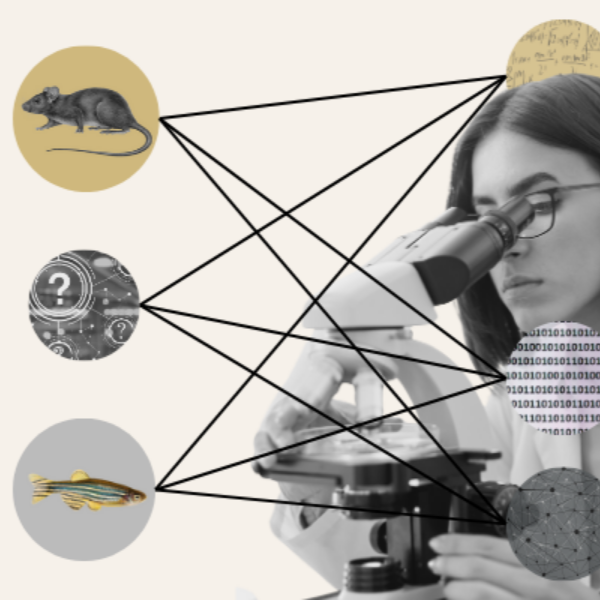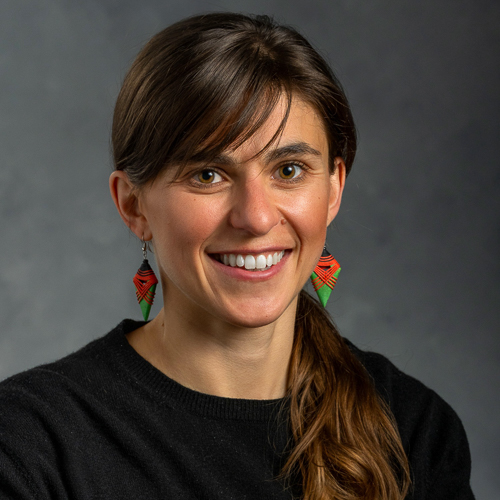Nicole Thompson: Pursuing Her Childhood Aspirations
Nicole’s curiosity about the natural world began at an early age. She spent countless days of her youth turning over logs in search of salamanders, stirring up river beds to catch crayfish, and fishing with her father in western Michigan. According to Nicole, “Such a fascination with the natural world came from being raised in a family that celebrated every neat creature I captured. At a young age, I recognized the beauty and intrinsic value of earth and its inhabitants.” Despite her early interests, Nicole never planned to study Zoology in college.
Upon graduating high school, Nicole played collegiate women’s soccer at Muskegon Community College (MCC). After two years at MCC, she transferred to Michigan State University (MSU) in pursuit of a Bachelor’s Degree in Nutritional Sciences. Nicole reflected, “While at MSU’s Academic Orientation Program (AOP) I abruptly changed my mind and chose to major in Zoology. To me, choosing a major was a huge deal. As I left AOP I was shocked that I had made such an important decision in a split second, without speculation. The moment I chose Zoology was the moment I realized that I didn’t care about a large salary. Instead, I wanted a career that embraced what I have loved since my childhood – the natural world.”
She wasn’t disappointed. Nicole explained, “As a Zoology major at MSU, my childhood observations were explained by various courses. The best part about zoology is that there are always exceptions to the rule and there are phenomena left to be explored!” She particularly took an interest in marine ecology, life history, evolution, and conservation biology.
Nicole dove right in opportunities available at MSU and the surrounding area. She was an aquarist intern at A&M Aquatics, attained both wet and dry suit SCUBA certification, joined the American Fisheries Society, and worked as an undergraduate research assistant in Dr. Jason Gallant’s Electric Fish Lab.
As a member of the Gallant Lab, Nicole investigated signal variation in the weakly electric Synodontis catfish. Dr. Jason Gallant further clarified, “Nicole worked on a new “side” project in our lab: trying to record electric discharge signals from a group of fishes Synodontis. There have been only three or four papers published documenting this behavior – from this paucity of information, Nicole learned to build and debug recording apparatus from scratch (requiring her to learn a variety of fabrication skills, such as routing and soldering) and proceeded to make her recordings. Nicole came into the lab in the twilight hours, between classes, and on weekends trying to find just the right circumstances that would induce these mysterious fishes to produce their signals. After more than six months of effort, Nicole finally recorded an electric signal. After much skepticism on her part, she convinced herself what she saw was real, and proceeded to document several species that previously been unknown to produce electric discharge signals.” Nicole has communicated these research findings to the scientific community during laboratory presentations, at Mid-SURE Symposium for Undergraduate Research Experiences in 2015, and her work will eventually be published in a peer-reviewed journal.
In spring 2016 all of Nicole’s hard work and dedication paid off. She earned her B.S. in Zoology with a concentration in Marine Biology and a minor in Marine Ecosystem Management from MSU. She was also awarded an Outstanding Academic Achievement and Promise in Zoology Award by the Department of Integrative Biology.
Nicole has put careful thought and consideration into her future career pursuits. She recalls a childhood fishing trip, in which, she observed an osprey descend towards the lake and ascend with a fish. This early life experience ignited her curiosity about animal interactions with each other and the environment. She also wondered if there was enough fish in the lake for both the osprey and herself. “As a child I recognized biodiversity to be intrinsically valuable. As an adult, I refuse to sit quietly while the earth’s biodiversity and natural beauty is destroyed. I chose Zoology so that I could obtain a career that puts me in a position where I can conduct research and outreach to protect the natural world. I want to investigate how climate change and anthropogenic factors are affecting ecological interactions and life histories of marine organisms, particularly those experiencing habitat degradation and overexploitation. Why marine organisms? In my opinion, the evolutionary adaptations found in oceans are far more fascinating than those found in freshwater organisms. Plus, humans are putting a lot of pressure on marine organisms. In order to protect the ocean’s biodiversity, we must research the implications of human impact. I cannot wait to be in a position where I can help protect the ocean’s inhabitants and promote sustainability through research and outreach.”
So what’s next for Nicole? After obtaining a Master’s degree, she plans to land her dream job as a marine ecologist. Dr. Gallant has no doubt that Nicole will be successful in her future scientific career. He elaborated, “The key features of a successful scientist are: brains, technical ability, persistence, and disciplined skepticism. Nicole has all of these qualities in spades. I have met few students with the intellectual gifts, together with the social graces that Nicole offers.”
Nicole deeply appreciates the invaluable life experiences and mentorship she attained while at the university. “At MSU, I’ve learned that great things come to those who work hard, to those who are persistent, and to those with passion. I’ve received invaluable mentorship from outstanding faculty who went beyond lesson plans by relaying passion for the natural sciences and the value of kicking and screaming to make a difference. As a recent graduate, I’m just now realizing my potential as an accomplished Spartan, and I’m excited to capitalize on the opportunities before me.”



